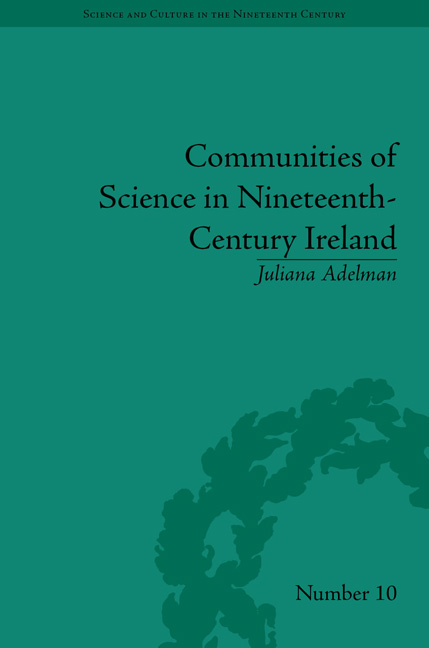3 - Agricultural improvement
Summary
… it is principally by giving a practical and industrial character to the higher departments of education that those new colleges can prove themselves truly useful or earn the permanent approbation of the country.
Robert KaneIn 1858 the report of the Royal Commission on the Queen's Colleges proclaimed the agriculture diploma a failure and recommended that it be abolished. The Commissioners’ report called into question the aims of the Queen's Colleges to introduce practical courses into the university. During the course of their investigation the Commissioners had asked Thomas Andrews (professor of chemistry and vice president of the Belfast college) whether he had many students who attended his classes primarily for the purpose of acquiring information applicable to manufacturing and industry. Andrews claimed that such students were very rare and further opined that ‘The demand for mere knowledge, for its own sake is not sufficient to induce a young man to pass through a fixed course of education’. Instead, Andrews told the Commissioners, the allure of the university was the prestige of a degree. Those who wanted practical information simply attended the one or two lectures relevant to their needs rather than matriculating for a full degree.
Despite Robert Kane's hopes that the new institutions would give a ‘practical and industrial character’ to university education, one of its most practical subjects was deemed a failure. The Queen's Colleges were a new type of university. One of their foremost supporters, Kane, saw the colleges as a place to extend and formalize technical education, training professional scientific men alongside lawyers and doctors. If science were to transform Ireland it would do so through the actions of men educated in scientific principles, particularly those sciences most applicable to the development of industry and agriculture. Thus the new colleges were to create a cadre of technocrats through two experimental diploma programmes in agriculture and civil engineering.
- Type
- Chapter
- Information
- Communities of Science in Nineteenth-Century Ireland , pp. 71 - 100Publisher: Pickering & ChattoFirst published in: 2014

